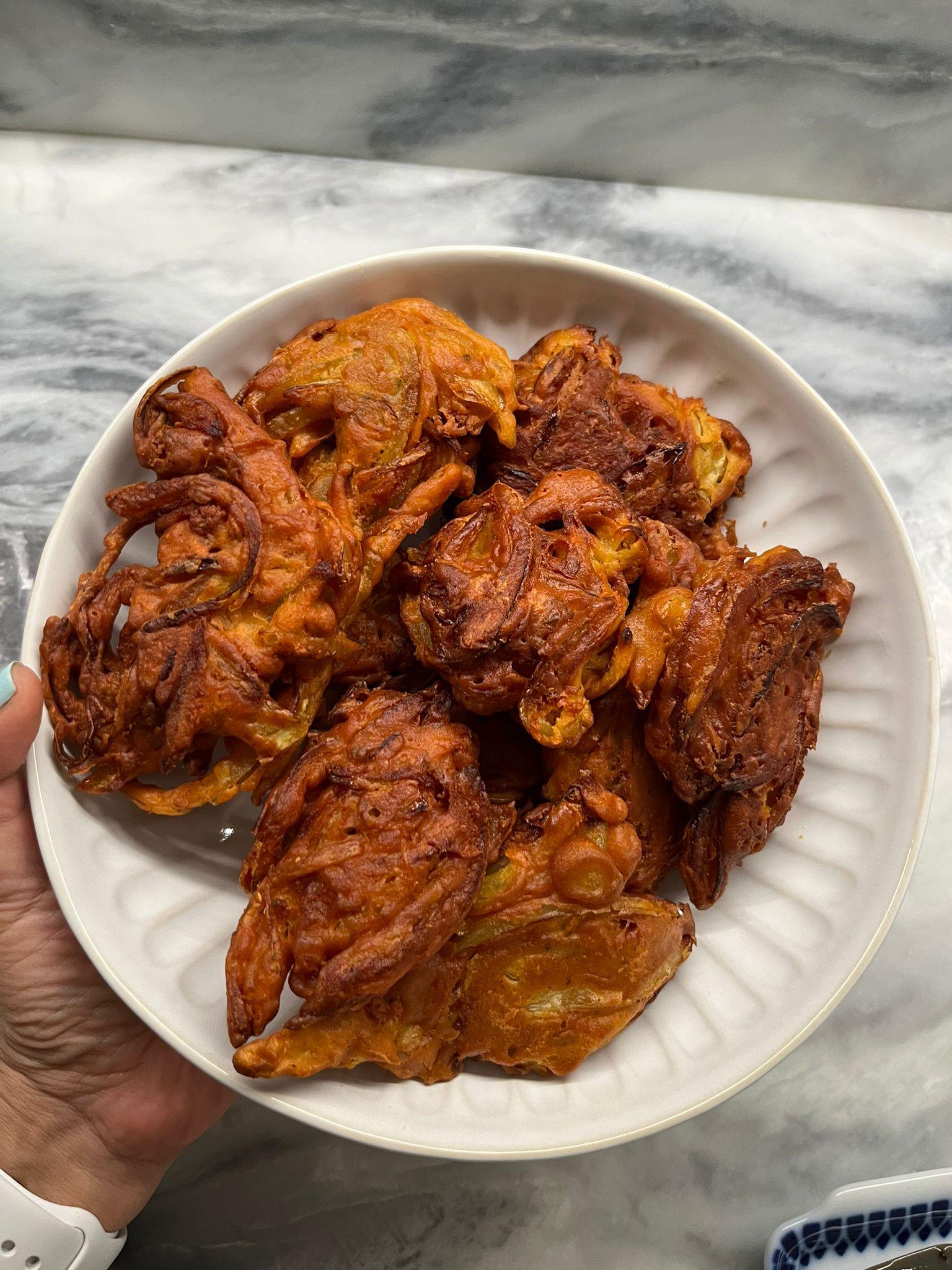When my husband and I decided not to have a third child, I shared an important Mimouna Kinberg family teaching with him. Mimouna (pronounced mee-moon-ah) is the Moroccan Jewish daylong festival celebrating the end of Passover and the possibilities ahead of us in our renewed experience of liberation.
Each year, my Moroccan mother and Ashkenazi father hosted a huge community-wide Mimouna celebration at our synagogue in Eugene, Oregon. Community members of all ages would line up for a fertility blessing from my mother. As my mother blessed them with ancient Hebrew words (which I have memorized but never seen in written form), she would dip mint in buttermilk and sprinkle it on their foreheads. She would bless them with length of days and a full life. The blessing recipient would then be handed a date stuffed with butter and nuts to eat.
Before she blessed them, Mother would remind everyone that there are a multitude of ways to be fertile in this world. While the buttermilk and date are explicitly fertility symbols related to human reproduction, children are one manifestation of human fertility, but there are other ways to nurture this world.
Therefore, guided by the wisdom of Mimouna, instead of having a 3rd child, my husband and I considered how else we might contribute to this world as free people. What could we cultivate in the year ahead? How might we grow peace, love, beauty, and wisdom in this world? Mimouna gave us a practical and inspiring religious model for fertility beyond progeny.
Mimouna itself has been and become so much more than a post-Passover fertility ritual. In Morocco, it was a time to open doors to receive guests. Any guest. My ancestors thought: Perhaps Elijah will come if we leave our doors open one more night? Elijah is the precursor to the Messiah/Messianic era, which is supposed to come during Passover. They thought if we open our doors and welcome all our neighbors, this may be the sign God needs for ushering in the Messianic era.
Mimouna was and is a special time to celebrate the interfaith community. In Morocco, it was a time for my mother’s Muslim neighbors to visit their Jewish friends and share delicacies. My ancestors knew building love and connection between groups is a holy act. Mimouna is one of the few historical Jewish celebrations to recognize that our neighbors are important and that we, too, as Jews, can build a better world by leaving our doors open.
In addition to fertility and interfaith engagement, Mimouna was and has further evolved into a day of celebration of the Spring. In Israel today, Mimouna is celebrated with festivals and barbecues. It is an opportunity to extend the Passover festival without the weight of matzah and memories of enslavement. Mimouna is about unadulterated joy.
Fertility, friendship, connection, celebration, and extending joy are the ingredients that make Mimouna a day growing in popularity amongst all Jews. Mimouna brings us deep wisdom for living, blooming, and flourishing as families, individuals, and as a people. May you, too, be blessed with length of days and a full life!
Stuffed Date Recipe
1 ½ cups soft pitted high-quality dates
1 cup blanched ground almonds
1 cup regular sugar
1 cup powdered sugar
1 egg white or equivalent
1 tsp water
Directions
- In a bowl, mix egg white or equivalent, almonds, and regular sugar together until well combined.
- Place the mixture in a pan over a low flame and stir continuously until the mixture becomes sticky.
- Add a teaspoon of water and cook for a minute longer.
- Remove from flame and allow to cool some.
- In the meantime, make sure that the dates have an easy opening.
- Take a small amount of the mixture (approximately ½ – 1 teaspoon depending on the size of your dates) and stuff it inside the date.
- Roll each date in powdered sugar.
Serve while warm or at room temperature.







